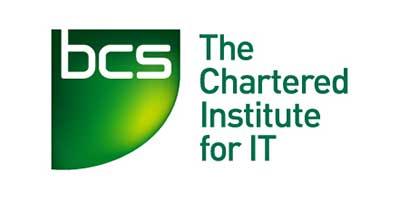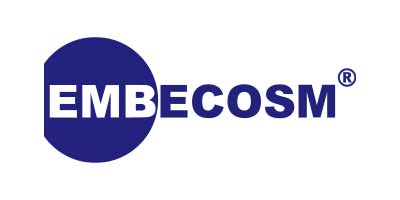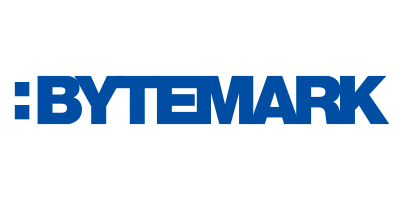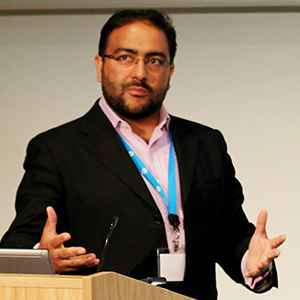
Digital Services
Tariq Rashid
The public sector digital strategies target two urgent problems - the effectiveness of services, and their cost. Open source, open standards, open data are key to fixing these. Tariq will explain how open technology naturally supports the way digital services need to be designed, built and iterated.
Tariq has brought the benefits of open source to every sector he has worked - from small high-tech startups, through large enterprises and now central government. He led the efforts to demystify open source in government and broaden it's supplier base to include smaller and different kinds of businesses.

IBM's journey with open source
Adam Jollans
IBM first contributed to the open source community in 1999, and since then has been a major contributor to many open source communities including Linux, Apache, Eclipse and OpenStack. At the same time, IBM has built successful offerings and businesses around Linux and open source, collaborating across the industry to drive innovation. Open source has never been more important both to IBM and to the world, and IBM continues to invest in open source projects and build new businesses around open technologies.
This presentation will review IBM's journey with open source, and consider the motivations, experiences and surprises along the way. It will discuss the work of IBM's Open Source Project Office and Linux Technology Center, the current trends in open source such as the key role of open source in cloud computing and the rise of open foundations, and the lessons learned in terms of open source and business.
Adam Jollans is currently leading the worldwide Linux and open virtualization strategy for IBM. He has been involved with Linux and open source since 1999, and previously was a programmer and supported customer projects. He has presented to a wide range of industry conferences and customers worldwide, including the ISO General Assembly; and Linux and open source conferences in the USA, Europe, and Asia. He graduated from Cambridge University with a degree in Computer Science, and is a Chartered Engineer and a Member of the British Computer Society.

Business Models and Commercial Agreements in Open Source
Amanda Brock
With many years experience in negotiating agreements for Open Source Amanda Brock will discuss how agreements that interface with FOSS licences work, what their key provisions are and how they reflect business models.
Amanda is General Counsel Global Switch and a European Representative of the Open Invention Network. Having been General Counsel, Canonical – lead commercial sponsor of the open source operating system Ubuntu, an OpenStack cloud partner for 5 years, where she managed the worldwide legal function. Her experience is diverse in the technology sector and her expertise includes open source software, cloud computing, big data, IOT, new governance models for co-operation and open development and device manufacture and distribution.
With over 15 years experience of commercial and IT law, gained working as an in house lawyer, including roles as European Manager at DSG International where she was the first lawyer at the ISP, Freeserve (UK’s first and biggest .com IPO), UK Legal Director, Aramark and General Counsel Nicole Farhi & French Connection, her experience lends itself to her very commercial approach to legal advice.
Amanda is a Solicitor, admitted in England and Scotland and has a Masters in IP and IT law from Queen Mary and a Masters in Comparative Jurisprudence from New York University. Amanda is a Visiting Research Fellow at Queen Mary and was a founder of the QM Legal Incubator Q:Legal. She is a Judge and part of the Advisory Board of the UK Open Source Awards.
She has spoken at academic, legal and business conferences internationally and written extensively on open source, tech and commercial law, including being the author of “E-Business: A Practical Guide to the Laws” and having contributed the chapter on commercial agreements to Oxford University Press’s “Free and Open Source Software, Policy, Law and Practice”.
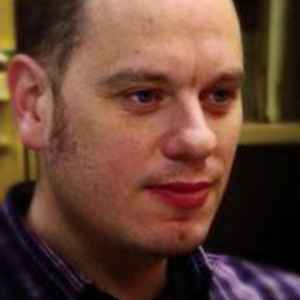
The best of times, the worst of times: The golden age of the modern web, open source and market commoditisation
Rob Blake
This talk explores one man's journey from the early beginnings of the World Wide Web and looks at how the evolution (and eventual domination) of open source web technology has proved to be a double-edged sword for many in the industry.
Rob Blake has been building websites for a living since 1994. In 1998 he joined leading London based agency Lateral where he worked with major clients including Levi Strauss, Which? and Inbev. A resident of the Calder Valley since 2001, Rob is a passionate advocate of Open Source and Open Standards-based websites, which he builds for a wide variety of local, national and international clients.
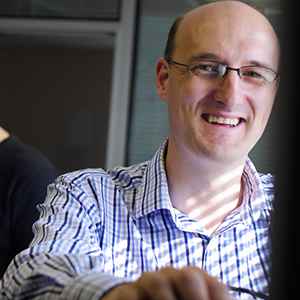
Discovering Open Source business models (or "Hacking the IT industry")
Stuart Mackintosh
Many businesses import Open Source Software without paying, contributors export it without being paid - where is the business model?
This talk covers some challenges and discoveries experienced over the last 15 years of running a company that implements Open Source software. Working against the tide of messages from the large IT & software companies, it has been a journey of discovery in a rapidly changing environment.
I will briefly describe how I came to discover what is now known as Open Source, and the motivations for starting a company in 1999 with the purpose of implementing free software in to businesses. I will share with you some of the business and Open Source principles I now use, and discuss the models of other Open Source businesses.
Stuart Mackintosh is active within UK Open Source & Open Standards organisations including the Open Source Consortium and Open Forum Europe / COIS. In 1999, he founded and still runs OpusVL, an implementer of Open Source business management software to UK public and private sector organisations.
From a background in electronics in the 80's, Stuarts strategic, technical and diagnostic roles in hardware companies drew him to move to networking, Internet application architecture and development. He became experienced in Novell and early Microsoft technologies before discovering Linux in the mid 90's, and has not looked back.
Having worked on a wide range of application and infrastructure projects across diverse sectors over a 20 year period, Stuart has created an expert team, robust processes and practical skills to deploy Open Source solutions in the commercial world.
Stuart believes that there should be a UK marketplace of Open Source buyers and suppliers, and would like to hear from anyone who would like to support this aim.
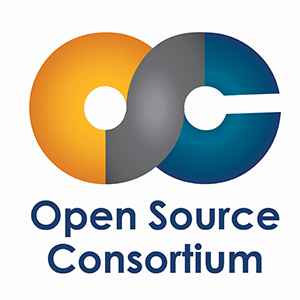
Open Source Consortium - an introduction
Irenie White
OSC is a trade association which represents companies and individuals delivering solutions and advice based on Open Standards and Free & Open Source Software.
As an industry association, OSC gives its members greater influence than they could achieve alone by providing a collective voice, and by supporting initiatives such as the implementation of open standards in public sector IT, the inclusion of open standards in school curricula and levelling the gender balance in the industry. At the core of its vision, OSC campaigns for the use of Open Standards in all aspects of public and commercial life, promoting the unique advantages of Free & Open Source Software and the independent expertise offered by members.
Irenie has been Chair of the Open Source Consortium since 2013 after working with the organisation since 2010. As MD of credativ, a free software consulting and services company, and through her work as a STEMNET Ambassador and with Advancing Women in IT, Irenie's focus is on collaboration and openness to further innovation in the wider technology industry.
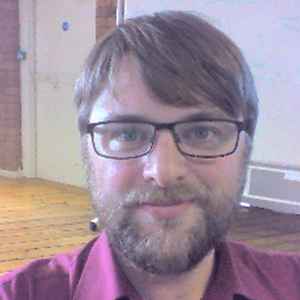
Thoughts from 10 years of open source business
Rob Taylor
Rob Taylor co founded Collabora in July 2005, and Codethink in 2007. He will talk about lessons learned in building businesses around open source, reflect on changes in the last decade and share his thoughts on the future for Open Source and peer production.
Rob Taylor has been working commercially with Linux and Open Source technologies since the late 90's. He founded two Open Source consultancies, Collabora and Codethink, and is now founding a new company to bring Open Source Hardware to the enterprise market.
Find out more at Nerabus.com and hit Rob up @computefuture on twitter

Penguinizing Business Models
Maha Sheikh
Maha will showcase a framework of eight broad business models that help to welcome open source into companies and convert resources into profit, value creation and social goodwill. These models incorporate both the products of open source and its processes (services). Focusing on the varying and rather deeper emphasis of a certain kind of value creation – use value – coupled with a need to harness and manipulate operant resources (community, externalities, ecosystem strength) she will clarify how open source related business models differ from a more generic understanding of the role of a business model.
The implications of this work involve a different approach to understanding the intricacies of adopting open source by companies, the increased emphasis on services to create more innovative services, the emergent nature of open innovation business models, and the role of resources (mainly community and code) and how this affects company boundaries with communities.
Maha Sheikh's passion for open source software communities took her on a journey from volunteer communities to companies engaging with open source software for internal use and also redistribution. Public sector interest in open source has also begun to grow and the particular use of crowdsourcing, shared expertise, and open source co-creation that characterises local councils in the UK have piqued her interest. Maha's academic position at Warwick Business School allows her to continue with her curiosity and research into how open source communities, business models and co-creation techniques are shifting and evolving with commercial interest.
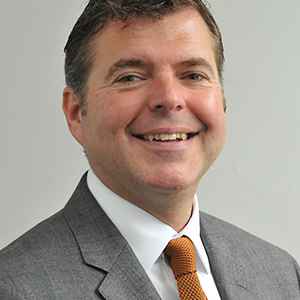
Building a self-sustaining eco system of clinically led open digital solutions for the care community
Peter Coates
Peter will give an overview of both the NHS OpenSource & Code4Health National Programmes, sharing the success to date, the challenges to overcome, the delivery model, and how in particular SME’s can engage with the Programmes.
Peter moved to NHS England just 18 months ago to lead the NHS Open Source & Code4Health Programmes aiming to create a self-sustaining eco system of clinically led open digital solutions for the care community.
Previously Head of Information and Technology for Sunderland City Councils Social Services Department, Acting Head of Transformation at Sunderland City Council and chair of the LGA Contact Council, with 25 years of working in local government Peter has gained considerable experience developing and implementing redesigned services across many different areas.
Peter was recently nominated and shortlisted for EHI Healthcare Champion of the year.
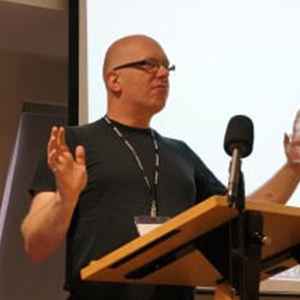
University R&D, Technology Transfer and FOSS
Scott Wilson
Universities undertake large amounts of software development R&D through a range of funding programmes and partnerships, and also as internal service development projects. However, direct commercialisation of software using common FOSS business models is still fairly rare, expertise in FOSS business models and licensing is very uneven among technology transfer units, and funding models rarely support viable software solutions.
So how can we put university R&D to work in developing viable products and services using FOSS? This talk will look at a few different approaches based on the experiences of OSS Watch at the University of Oxford.
Scott Wilson is a freelance IT consultant and a partner at Cetis LLP, a company specialising in interoperability and standardisation. He is also a member of OSS Watch, the UK centre of expertise on Open Source in academia, based at the University of Oxford, where he was Service Manager from 2012 to 2015. Scott has been involved in FOSS for many years, is a committer at the ASF, and maintains a number of projects such as HtmlCleaner.

Support for Innovation
Robin Kennedy
Robin will outline how the Knowledge Transfer Network (KTN) works with Innovate UK, the UK’s Innovation Agency, to support businesses innovation, either individually or collaboratively, and the importance of open source as part of the mix.
He will describe the various grants that are available for innovative projects and how KTN and Innovate UK bring organisations together to innovate collaboratively in ways that otherwise might not happen.
Robin recently joined the Knowledge Transfer Network (KTN) from NMI, the electronics systems trade association where he managed microelectronics and embedded software networks for over eight years as well as contributing to the KTN's Engineering Skills Working Group. With a background in software development and team/programme management in a variety of semiconductor businesses, Robin is supporting the core ICT programme at the KTN including building links with organisations and communities in the Thames Valley and beyond. He is based near Reading.

Compére
Dr Jeremy Bennett
Dr Jeremy Bennett is founder and Chief Executive of Embecosm, a consultancy specializing in the development of open source compiler tool chains.
